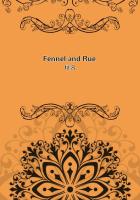LEFT by ourselves, there was a moment of silence among us.
Eustace spoke first.
"Are you able to walk back?" he said to me. "Or shall we go on to Broadstairs, and return to Ramsgate by the railway?"He put those questions as composedly, so far as his manner was concerned, as if nothing remarkable had happened. But his eyes and his lips betrayed him. They told me that he was suffering keenly in secret. The extraordinary scene that had just passed, far from depriving me of the last remains of my courage, had strung up my nerves and restored my self-possession. I must have been more or less than woman if my self-respect had not been wounded, if my curiosity had not been wrought to the highest pitch, by the extraordinary conduct of my husband's mother when Eustace presented me to her. What was the secret of her despising him, and pitying me? Where was the explanation of her incomprehensible apathy when my name was twice pronounced in her hearing? Why had she left us, as if the bare idea of remaining in our company was abhorrent to her? The foremost interest of my life was now the interest of penetrating these mysteries. Walk? Iwas in such a fever of expectation that I felt as if I could have walked to the world's end, if I could only keep my husband by my side, and question him on the way.
"I am quite recovered," I said. "Let us go back, as we came, on foot."Eustace glanced at the landlady. The landlady understood him.
"I won't intrude my company on you, sir," she said, sharply. "Ihave some business to do at Broadstairs, and, now I am so near, Imay as well go on. Good-morning, Mrs. Woodville."She laid a marked emphasis on my name, and she added one significant look at parting, which (in the preoccupied state of my mind at that moment) I entirely failed to comprehend. There was neither time nor opportunity to ask her what she meant. With a stiff little bow, addressed to Eustace, she left us as his mother had left us taking the way to Broadstairs, and walking rapidly.
At last we were alone.
I lost no time in beginning my inquiries; I wasted no words in prefatory phrases. In the plainest terms I put the question to him:
"What does your mother's conduct mean?"
Instead of answering, he burst into a fit of laughter--loud, coarse, hard laughter, so utterly unlike any sound I had ever yet heard issue from his lips, so strangely and shockingly foreign to his character as _I_ understood it, that I stood still on the sands and openly remonstrated with him.
"Eustace! you are not like yourself," I said. You almost frighten me."He took no notice. He seemed to be pursuing some pleasant train of thought just started in his mind.
"So like my mother!" he exclaimed, with the air of a man who felt irresistibly diverted by some humorous idea of his own. "Tell me all about it, Valeria!""Tell _you_!" I repeated. "After what has happened, surely it is your duty to enlighten _me_.""You don't see the joke," he said.
"I not only fail to see the joke," I rejoined, "I see something in your mother's language and your mother's behavior which justifies me in asking you for a serious explanation.""My dear Valeria, if you understood my mother as well as I do, a serious explanation of her conduct would be the last thing in the world that you would expect from me. The idea of taking my mother seriously!" He burst out laughing again. "My darling, you don't know how you amuse me."It was all forced: it was all unnatural. He, the most delicate, the most refined of men--a gentleman in the highest sense of the word--was coarse and loud and vulgar! My heart sank under a sudden sense of misgiving which, with all my love for him, it was impossible to resist. In unutterable distress and alarm I asked myself, "Is my husband beginning to deceive me? is he acting a part, and acting it badly, before we have been married a week?" Iset myself to win his confidence in a new way. He was evidently determined to force his own point of view on me. I determined, on my side, to accept his point of view.
"You tell me I don't understand your mother," I said, gently.
"Will you help me to understand her?"
"It is not easy to help you to understand a woman who doesn't understand herself," he answered. "But I will try. The key to my poor dear mother's character is, in one word--Eccentricity."If he had picked out the most inappropriate word in the whole dictionary to describe the lady whom I had met on the beach, "Eccentricity" would have been that word. A child who had seen what I saw, who had heard what I heard would have discovered that he was trifling--grossly, recklessly trifling--with the truth "Bear in mind what I have said," he proceeded; "and if you want to understand my mother, do what I asked you to do a minute since--tell me all about it. How came you to speak to her, to begin with?""Your mother told you, Eustace. I was walking just behind her, when she dropped a letter by accident--""No accident," he interposed. "The letter was dropped on purpose.""Impossible!" I exclaimed. "Why should your mother drop the letter on purpose?""Use the key to her character, my dear. Eccentricity! My mother's odd way of ****** acquaintance with you.""Making acquaintance with me? I have just told you that I was walking behind her. She could not have known of the existence of such a person as myself until I spoke to her first.""So you suppose, Valeria."
"I am certain of it."
"Pardon me--you don't know my mother as I do."I began to lose all patience with him.
"Do you mean to tell me," I said, "that your mother was out on the sands to-day for the express purpose of ****** acquaintance with Me?""I have not the slightest doubt of it," he answered, coolly.















